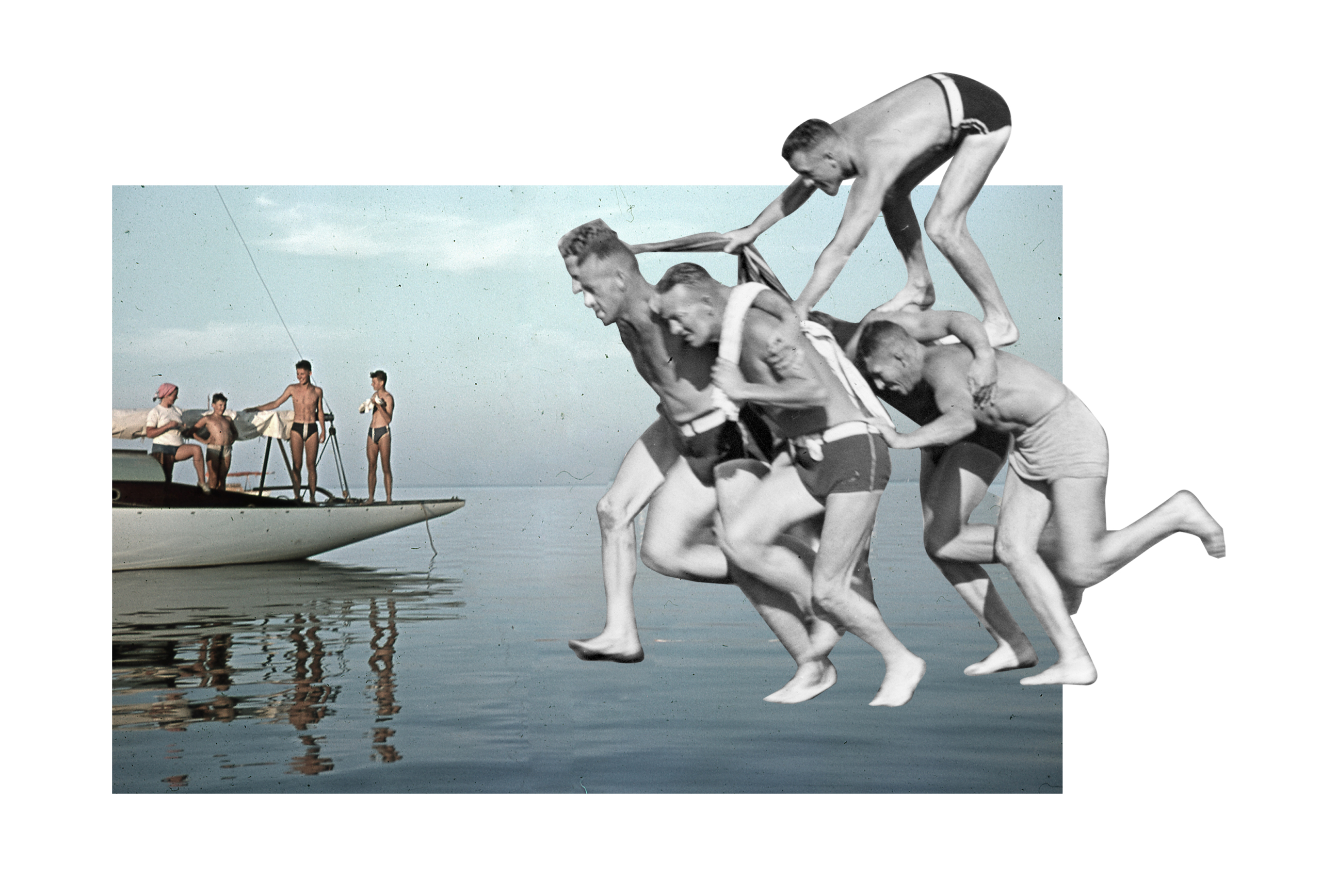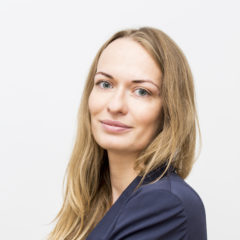Public domain – your raw material. How to organize a collage workshop
Last year, during our Public Domain Day celebrations, we decided to organize a collage workshop for the first time, using this opportunity as a pretext to talk about copyright and open resources accessible online. This summer we are returning with similar, though somewhat improved, workshops, which are the introduction and preparation for our Autumn campaign aimed at promoting the digital resources of Warsawãs cultural institutions.
Why collage?
A collage is a good excuse to actively explore public domain resources and look for a new context for them. The collage is a form accessible to both professionals and amateurs, it does not require mastering advanced techniques, manual skills, it does not imply high costs or time-consuming processes. At the beginning, scissors, glue and free access to the public domain resources is enough. In the process of creating compositions, even the well-known images can reveal intriguing details and be framed with oneãs own, surprising commentary.
A collage workshop is a great opportunity to introduce audiences to open culture content accessible online. This was the goal of the two collage workshops we organized last month as part of the ãMake good useã project. We invited both Warsawãs cultural institutions and national institution located in Warsaw to cooperate, among them:ô The Public Library of the Capital City of Warsaw, History Meetings House, Museum of Warsaw, National Museum in Warsaw, National Digital Archive and Jewish Historical Institute. Each institution selected works from its digital collection and curated them by creating a “package” of digital materials for workshopsã participants. The sets selected by the institutions included digital reproductions of paintings and engravings, photographs of popular architectural objects and materials illustrating everyday life of the inhabitants of the city, as well as pre-war Yiddish advertisements published in the press. These resources were available to participants in both digital and printed versions so that participants could create collages in both digital and analogue form. During the workshops, apart from glue and scissors, colored paper, foils, markers and other materials were also provided, so that the compositions could become even more eclectic. The final results of the workshop can have different formats – it can be a cover design, a postcard, a bookmark, an illustration for an article. At one of our workshops, teenagers created collages that will serve as the basis for the creation of washable tattoos.
How to do it?
As you can find a huge diversity of public domain content from cultural institutions on the web, the cooperation with institutions is not a necessity. We decided to invite Warsawãs institutions to cooperate, because the collages will be used in the Autumn campaign promoting their digital resources and we wanted to make sure the institutions are involved in the early stage of the process as partners. Such cooperation has many advantages: museumsã employees are an amazing support in selecting and choosing resources and great partners in discussing their potential. However, we can easily imagine a similar workshop organised by any institution or organization with its own collection or just using the collections accessible online under CC-licenses or in Public Domain.
A few useful tips how to organise such workshop you can find below.

Step 1.ô Prepare the workshop
ô 1.1. At the beginning you have two options:
1.a. choose the Public Domain or CC-licensed resources from the ones you can find on the web,
1.b. invite institutions to cooperate and ask the collection to be scaled for workshops,
1.2.ô invite an artist who creates collages himself/herself and ask him/her for help in running the workshop,
1.3. prepare additional materials (colored papers, foils, glue, scissors, paper knives, cardboard and white paper, preferably A4 and A3).
1.4. prepare detailed information on all the materials so that participants will have access to all the information needed to properly attribute their work.
Step 2.ô Publish an open call
2.1. announce the workshop, clearly defining whether it is open to general public, even those who have not previously had contact with this technique,
2.2. to know beforehand how people want to work (analog vs digital collage) ask this question in the application form or via e-mail
2.3. be clear about how you would like to share the results of the workshop (where the participants’ works will be made available, under what license, etc.).
Step 3.ô Workshop
1. Introduction to the workshop (1h):
- explain what is Public Domain, CC licenses and how it operates within the copyright framework, leave time for questions,
- give a short introduction to the resources available at the workshop (how you selected it? or who selected it? what is a main theme, if there is one, etc) and give people time to go through it,
- propose the general theme for the workshop and the works that will createdô (optional).
2. Introduction to collage-making (45 min – 1 h):
- what is a collage? how this technique has been changing?
- what are different types of collage (visual, sound)?
- show examples of works of selected artists as inspirations,
- give practical tips.
3. Participantsã own work (min. 2 h)
4. Wrap-up (1h) – collect all the works created by participants, discuss them in the group and after that scan them and discuss with all the participants if they agree to share their works and under what license; help them create the rights statements.ô
Step 4.
Share the collages online, along with the information about the author, the license and the links to all the sources.



